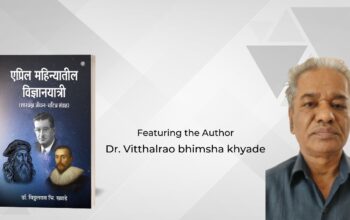Should I hire a Beta Reader or an Editor? If you are battling for the correct answer to this question then this write-up is for you! For most of us the writing process, telling our story is likely a very solitary process – leaving us alone with our characters and world for long stretches as we worked to get everything just right. However, with the last paragraph written, it is finally the right time to let other people read it too. Interestingly, this is the most crucial time for the writers as well, as this is the time for decision-making. The big decision, which one needs to make as an author is to choose between a beta reader and an editor.
Now, let me make it very clear that in this article, I am not supporting any particular step between beta reading or editing. This write-up is written with a simple and transparent objective of highlighting the overall difference between beta readers and editors, so that one can understand the benefits of both and make a rather decision on their own!
Beta Reader: A beta reader is someone who reads your entire book and provides you with detailed feedback on your story and character. They will tell you what works and what does not. Some examples are:
• Are your characters developed well enough? Did they act in ways that made sense with who they were?
• Was your storyline easy to follow, or filled with plot holes?
• Did they see your surprise twists coming a mile away?
A beta reader is giving you what might be the first impression of your book by someone other than yourself, so it is important to take that feedback seriously. At the same time, it is important to remember that everyone comes from different backgrounds and with different opinions, so it may be a good idea to get more than one beta reader involved. Just remember that you need to manage all of the comments that come back, and the more readers you have, the bigger that job will be.
What you do with that feedback is also up to you, and while there is no rule that you have to act on each and every piece of criticism, it’s most important to at least focus on areas that multiple readers had issues with. Of course, hearing anything negative about your labour of love might be tough on your ego, but it’s one of the most important steps to improving as a writer – and is also the reason why it’s rarely a good idea to ask your friends or family to beta read for you. Whether consciously or not, they may attempt to spare your feelings by not giving honest feedback, especially about problem areas.
Just keep in mind that beta readers are not editors or proofreaders. It is not the beta’s job to find spelling and grammatical mistakes, and they likely are not trained to catch them all anyway. They should be focused on the bigger picture, which is why of the three groups; they should be involved earliest in the process. The plot or character issues they identify might require the most extensive changes to your story, so using them too late can risk having to do more extensive rewriting if you are too far along. That being said, you still may want to wait at least until after your first draft, or even after what you consider to be your possible final draft.
Editor: The editor’s job is to help you polish your manuscript into something that is ready to publish. Editors are far more suited, and trained, to do this than beta readers, and their services can be broken down into four different categories, which are:
• Developmental Editing
• Line Editing
• Copy Editing
• Proofreading
With the exception of developmental editing, these services would generally be used after you have incorporated the feedback from your beta readers into a final draft. Editors will go through your draft line by line, fixing or identifying issues. Editing is not cheap, but at least some level of it is essential for all books. Exactly what level of service is needed is really project and author dependent, but here is a quick description of each type of editing service.
Written By NEEL PREET – Author of the Books, Voice From The East (2016); Journey With Time Place And Circumstances (2018) & Indian Defence Files (2021).



